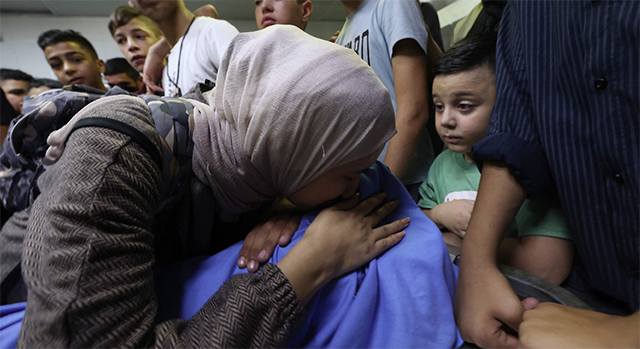RAMALLAH — Israeli soldiers shot dead a 19-year-old Palestinian in the West Bank on Wednesday, with the army alleging he had opened fire at them although witnesses insisted he was unarmed.
The incident, which occurred just past the Ofra settlement, north of Ramallah, was the first time this year that a Palestinian has been killed by troops in the West Bank.
Palestinian medical and security sources identified the victim as Mohammad Mubarak, 19, from Jalazun refugee camp and said he was working as a labourer on the road connecting Ramallah and Nablus, as part of a USAID-funded project.
His father is locally elected leader of the Jalazun camp and member of Palestinian President Mahmoud Abbas’ Fateh party, they said.
The Israeli army said a “terrorist” had opened fire at a military post near Ofra, and troops had returned fire, hitting him.
“We will continue to protect Israeli civilians from acts of terrorism like this,” said army spokesman Peter Lerner, in apparent reference to an attack on settlers.
The military also distributed pictures of the weapon he had allegedly used.
The army later said an investigation had found that the Palestinian first opened fire at passing cars near Ofra before shooting at Israeli soldiers.
But eyewitnesses told AFP that Mubarak was not armed, and he had been harassed by soldiers who made him lift up his shirt to ensure he was not carrying explosives.
Palestinian housing and public works minister Maher Ghneim condemned what he described as the “cold-blooded killing” of a labourer who was working on a project run by the ministry in coordination with USAID.
Ghneim also lashed out at Israel’s attempts to “distort the story” by saying Mubarak had opened fire on troops, claiming the youth had been “carrying a sign to direct the traffic” when he was shot.
He called for an independent inquiry into the shooting by international rights groups.
A total of 27 Palestinians were killed by the Israeli army in the West Bank in 2013, three times the figure from the previous year, figures from Israeli rights watchdog B’Tselem showed.















